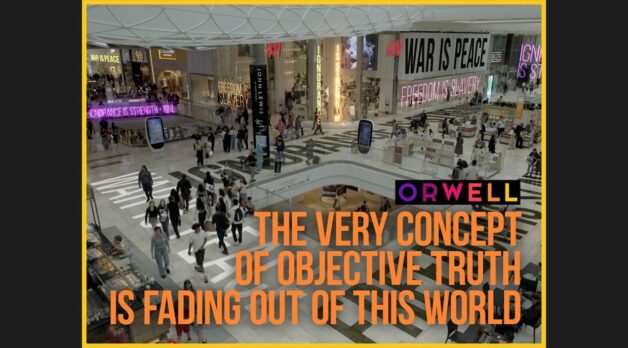 Orwell: 2+2=5
Orwell: 2+2=5
Raoul Peck's new documentary Orwell: 2+2=5 opens with a credit sequence featuring images of what appear to be microscopic larvae wriggling across the screen. The message seems clear: something nefarious is afoot on this globe, but still in its incipient stages. If we fail to act, it’s going to get much worse.
In recent years, the filmmaker has made direct, no-nonsense use of the nonfiction form to address, from various angles, the rot of white supremacy, its historical roots and its unchecked future. Building on I Am Not Your Negro, Silver Dollar Road, the miniseries Exterminate All the Brutes and last year’s Ernest Cole: Lost and Found, Orwell uses the famous writer's letters, essays and novels to illustrate the clear rise… Read more
By Inney Prakash
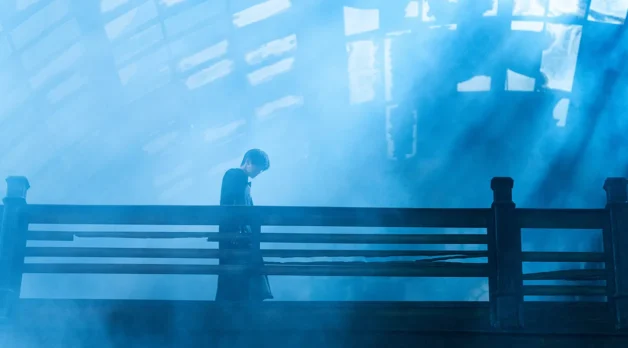 Resurrection
Resurrection
The cinema world was quick to juxtapose an image from the climax of this year’s award ceremony—where Iranian director Jafar Panahi took home the Palme d’Or for his generously-received It Was Just an Accident—alongside one in which this year’s jury president Juliette Binoche protested Panahi’s 2010 arrest and imprisonment while she accepted her Best Actress prize for Certified Copy. The latter image, one of the most indelible of recent Cannes history, also circulated a bit after the lineup was announced several weeks before the festival began, as many doubted Binoche’s capacity for impartiality. Whether or not Panahi’s film needed only to be at least decent (or, rather, acquired by Neon) in order to secure the Palme, it was hardly the… Read more
By Blake Williams
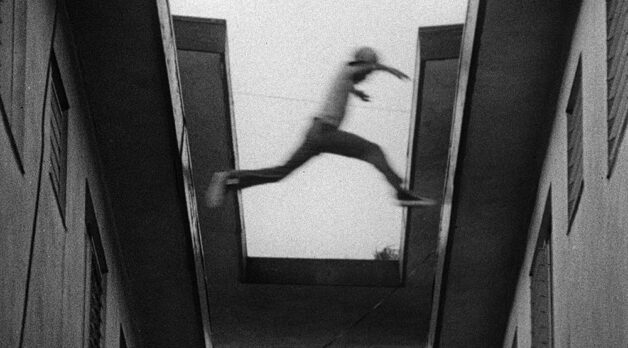 Killer of Sheep
Killer of Sheep
With Killer of Sheep entering the Criterion Collection today in a new 4K restoration, we are reposting James Ponsoldt's interview with its director, Charles Burnett, from our Spring, 2007 issue.
“When I stumbled across a 16mm print of Killer of Sheep at film school in North Carolina, it was like finding gold. I had never seen an American film quite like it...raw, honest simplicity that left me sitting there in an excited silence. It echoed throughout George Washington, the first film that David Gordon Green and I made together.”
— Tim Orr, cinematographer (All the Real Girls, Raising Victor Vargas)
What sort of anxiety exists in the influence of a visionary masterpiece that is virtually unknown by a majority of the mainstream… Read more
By James Ponsoldt
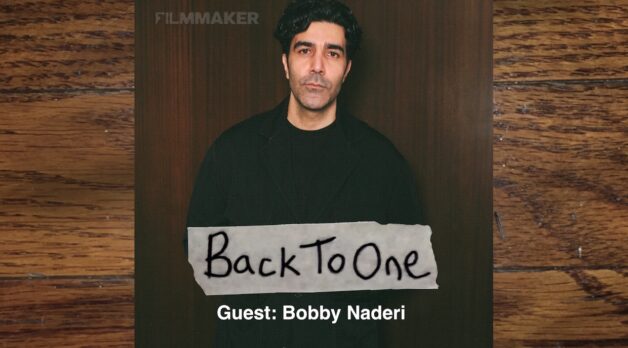
You know Bobby Naderi from his subtle and sometimes hilarious work in films like Bright and The Beekeeper. Now he brings that same aliveness to the new Amazon series The Better Sister, where he plays Detective Matt Bowen. On this episode, he talks about how his nomadic youth shaped his life and work, how failures paved the way for breakthroughs, why he stopped anticipating how a scene will play out, how his mother’s blunt criticism of his acting work helped him get better, and much more.
Back To One can be found wherever you get your podcasts, including Apple Podcasts, Google Play, and Spotify. And if you're enjoying what you are hearing, please subscribe and rate us! Follow Back To One… Read more
By Peter Rinaldi
 Caroline Clark and Joe Pirro
Caroline Clark and Joe Pirro
Producers Joe Pirro and Caroline Clark attended the 2025 Cannes Film Festival as Gotham Cannes Producer Network Fellows. Pirro is with the New York company Symbolic Exchange, and Clark L.A.'s Kindred Spirit. The two recently collaborated on Andrew Ahn's The Wedding Banquet, and here, in a part one of a two-part conversation, that share their festival debrief. First up, Clark querying Pirro.
Clark: You were awarded this year’s Sundance Institute | Amazon MGM Studios Producers Award for Fiction at the Sundance Film Festival. From a decorated producer’s point of view, how do you like to prioritize your time at Cannes, given all of the offerings available to you?
Pirro: Cannes is a challenge from a scheduling perspective. You’re in the south of… Read more
By Filmmaker Staff
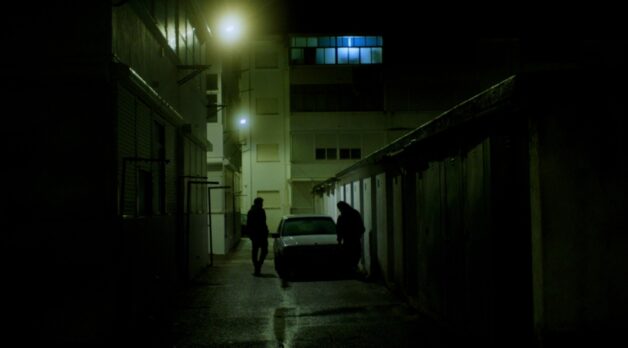 Entroncamento
Entroncamento
In a piece about the documentaries at this year’s Cannes, Slate’s Sam Adams noted the existence of Put Your Soul on Your Hand and Walk but declined to name the section it was in, referring to it only as “a low-profile sidebar devoted to independent productions.” That would be ACID, which—with the possible exception of the CINEF section that shows film school shorts—is, yes, probably the lowest-profile of the Cannes premieres sections. To decide ACID isn’t worth naming is a reminder of the infinite proliferation of hierarchies at Cannes; there are dark rumors that even though the press badges are theoretically tiered by color (yellow at rock bottom, with my humble blue the next step up), there are tiers within… Read more
By Vadim Rizov
 Denzel Washington (right) in Highest 2 Lowest
Denzel Washington (right) in Highest 2 Lowest
Spike Lee’s maligned 2013 update of Park Chan-wook’s 2003 revenge picture, Oldboy, did little to inspire confidence in his latest reimagining of an Asian classic, this time relocating Akira Kurosawa’s High and Low (1963) to DUMBO in Brooklyn. Given a very Spike title of Highest 2 Lowest, the Denzel Washington vehicle is expectedly brimming with the director’s signature expressive filmmaking—wildly cubist jump cut coverage within establishing shots, double-take character greetings and spontaneous shifts into saturated 16mm footage of New York abound—and tends to feel more like another excuse to create a cinematic love letter to his hometown and the Black artists and pop legends who inspire his craft. Lee replaces the shoemaking business that made Kurosawa’s protagonist Kingo Gondo wealthy… Read more
By Blake Williams
 Vahid Mobasseri, Majid Panahi and Hadis Pakbaten in A Simple Accident
Vahid Mobasseri, Majid Panahi and Hadis Pakbaten in A Simple Accident
Sentenced by the Iranian government in 2010 on spurious grounds to six years in prison, a punishment that came with a 20-year ban on making movies, Jafar Panahi immediately set about violating the latter. Title notwithstanding, 2011’s This is Not a Film was what I’d call an “actual movie,” spry and self-reflexive like his first two features, 1995’s The White Balloon and 1997’s The Mirror. The post-Film features that followed—Closed Curtain, Taxi, 3 Faces and No Bears—merited that first post-ban title more. Leaning upon his undeniably courageous status as a (since) multiple-times-jailed dissident filmmaker, those works foregrounded the director as a benign on-screen persona bemusedly interacting with the world around him, and the films followed that character’s lead: engaged only so much,… Read more
By Vadim Rizov
 Orwell: 2+2=5
Orwell: 2+2=5







